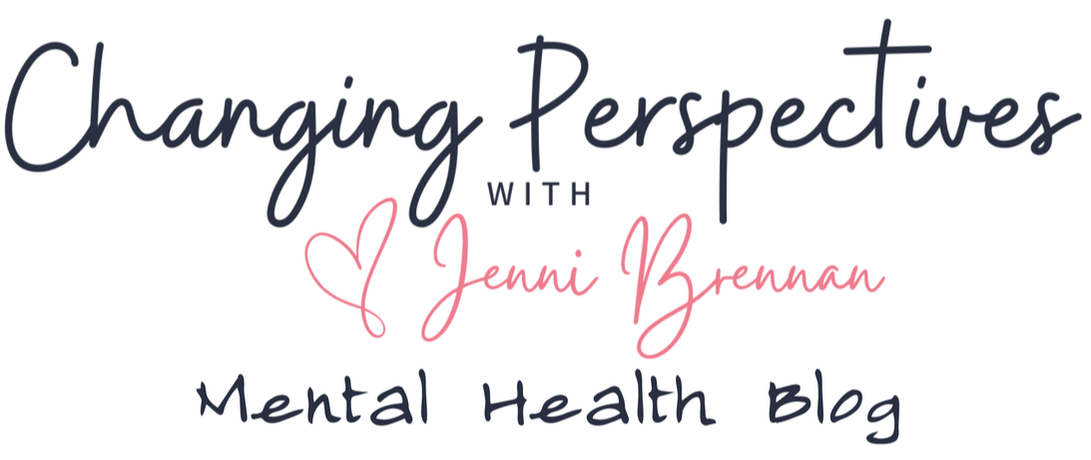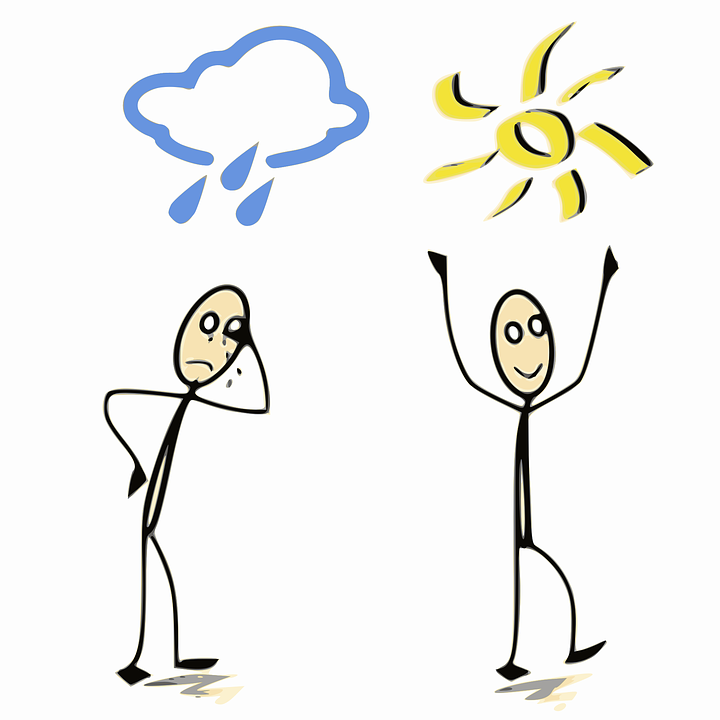|
If you have ever been on social media, you surely have seen those bright and cheerful memes reminding you that "Happiness is a Choice," instructing you to "Be Happy" or "Choose Happy" and sharing insights such as "Mind Over Matter." Often these memes are helpful, serving as a way for us to reframe our outlook and view our lives through a more positive lens. We've all had those days (or weeks) where nothing seems to be going our way and it becomes very easy to focus on the negative. A bright and simple meme may catch our eye as we scroll through our Facebook feed and somewhere deep inside our brain the message resonates with us. Suddenly we begin to consider the things that are going right. Sometimes we can "Choose Happy." Thanks, Facebook!
But what about those times when happiness isn't a choice? Are there times when we simply can't "Choose Happy"? According to the National Institute of Mental Health, nearly 10% of the US population suffers from a mood disorder such as Major Depressive Disorder, Dysthymic Disorder or Bipolar Disorder. Nearly half of those cases are classified as severe (National Institute of Mental Health, 2016). Think about that statistic. 10%. 1 in 10. Let's look at it in terms of raw numbers: the National Alliance on Mental Illness reports that there are over 20 million Americans living with Major Depressive Disorder or Bipolar Disorder (National Alliance on Mental Illness, 2016). 20 Million. For these individuals, happiness isn't always as simple as making a choice. Anyone that has ever battled a mood disorder or known someone with such a diagnosis knows that even when everything in someone's life is going right, happiness for them can be fleeting. Sometimes it can feel completely impossible. For many individuals, happiness is often just out of reach and the weight of depression can be deeply debilitating. For these individuals it isn't as simple as choosing happiness. For many, depression is something that will follow them for many years; always lurking just around the corner. Treatment and symptom management options include medication, psychotherapy, support groups, lifestyle changes and diet changes. In other words, it takes work and lots of support to manage a mood disorder and just when it finally seems to be under control - boom! The bottom drops out and suddenly everything feels overwhelming and hopeless...again. What is it like for these individuals when they see the bright and cheerful memes on social media reminding them to choose happiness? Wouldn't it be nice to think the memes have magical powers that can rewire the chemical imbalances in some people's brains? Wouldn't it be wonderful if these catchy phrases could do away with the need for anti-depressants, psychotherapy and help to eliminate the need for mental health reform? Wouldn't it be amazing if memes could make those suffering from depression finally break free of the black cloud that is often swirling around inside their head? Sure it would. But, this is the real world. I would wager a bet that for many of these individuals the calls to "Choose Happiness" do far more harm than good and often contribute to the negative stigma surrounding mental illness. In other words, they alienate individuals and reinforce the isolation often experienced with a mood disorder. For an individual with depression, likely the one thing they want more than anything in the world is to wake up and feel normal. Based on my experiences, very few people enjoy opening their eyes each morning only to be greeted by the heaviness and isolation of depression. There are constant reminders to these individuals that they are different, they are not normal and that it is not ok to feel depressed. Mental illness, such as depression, carries a deeply negative stigma and being diagnosed with a mood disorder is not something most people share with others. Instead, once someone receives such a diagnosis, they often keep it a secret and carry it with them in shame. Yet diagnoses such as diabetes, heart disease, cancer or respiratory disease don't carry that same level of negative stigma and shame. Maybe that's just because things like diabetes, heart disease, cancer and respiratory disease are more common and more dangerous than mental illnesses such as depression, right? Wrong. According to the Centers for Disease Control and Prevention, Suicide is the 2nd leading cause of death for individuals ages 10-34 and the 4th leading cause of death for those aged 35-54 (Centers for Disease Control and Prevention, 2016). The National Alliance on Mental Illness reports that 90% of those who die by suicide have an underlying mental illness (National Alliance on Mental Illness, 2016). Let those numbers and statistics sink in. We are talking about individuals with a diagnosis that is very prevalent, very debilitating and can also be deadly. Yet, the message our society often sends these individuals is that THEY are the problem, they are not normal and they simply need to "Choose Happy." Being reminded to "Choose Happiness" over and over again seems to be akin to telling the depressed person to "Get Over it" or "Just be Normal." Maybe, for some people, those bright and cheerful memes are actually quite painful. Do I think everyone should stop sharing the memes in question? No. Of course not. For many people, they provide a bright spot and a useful reminder to change their perspective. But, maybe before sharing such a meme, take a moment and reflect on the people in your life who may be suffering silently from a mood disorder. Remember that the statistics I have shared are only based on those individuals who have sought treatment for a mood disorder. There are likely far more individuals suffering in complete silence, afraid or unsure of how to access support. Chances are that you personally know at least one of the more than 20 million people in the country who have such a diagnosis. How can you best support them? How can you help to break down some of the barriers for them? How can you help to get rid of the negative stigma associated with mental illness? What if your message to them conveyed that it was ok for them to be themselves? What if your message conveyed total acceptance and unconditional support and didn't put pressure on them to "Choose Happiness?" What if your message conveyed that you still choose them, no matter how they are feeling? References Centers for Disease Control and Prevention. 10 leading causes of death by age group, United States - 2014. (n.d.) Retrieved July 25, 2016 from http://www.cdc.gov/injury/images/lc-charts/leading_causes_of_death_age_group_2014_1050w760h.gif National Alliance on Mental Illness. Mental health facts in america. (n.d). Retrieved July 25, 2016 from http://www.nami.org/NAMI/media/NAMI-Media/Infographics/GeneralMHFacts.pdf National Institute of Mental Health. Any mood disorder among adults. (n.d) Retrieved July 25, 2016 from http://www.nimh.nih.gov/health/statistics/prevalence/any-mood-disorder-among-adults.shtml
2 Comments
|
Mental healthNow, more than ever, we all need a little support to help get us through the rough spots. With all the pressures of life, it can be a challenge to find time to not only take care of yourself but also to truly understand who you even are anymore. Archives
July 2023
Categories
All
|
Sign Up For the Changing Perspectives Newsletter
Changing Perspectives with Jenni Brennan is supported by its audience.
When you purchase through links on this site, an affiliate commission may be earned. Learn More.
When you purchase through links on this site, an affiliate commission may be earned. Learn More.
Changing Perspectives Copyright © 2023


 RSS Feed
RSS Feed
